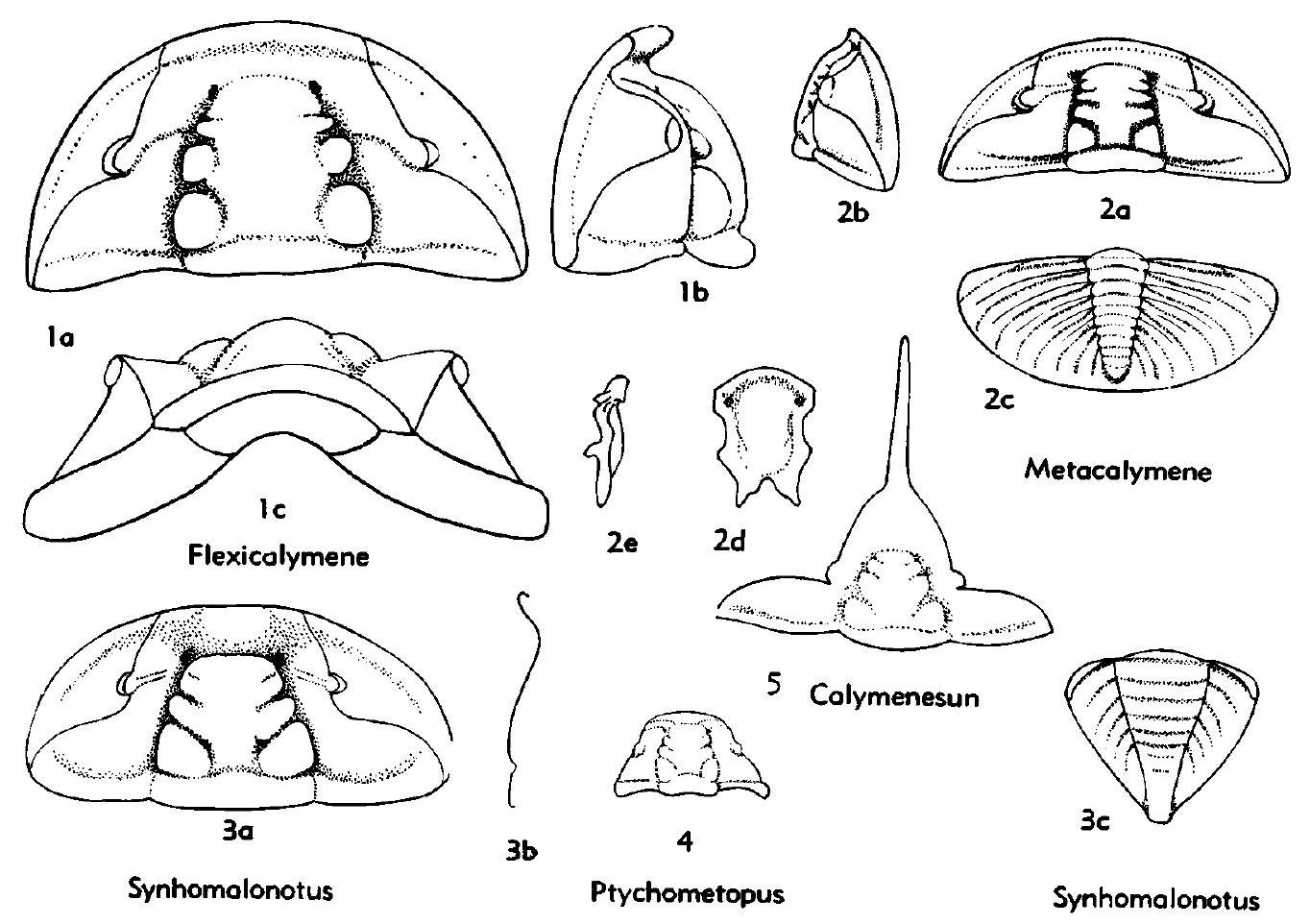Welcome to the Treatise on Invertebrate Paleontology!
Please enter a genera name to retrieve more information.

Synhomalonotus
Classification
Phylum:
Arthropoda
Subphylum:
Trilobitomorpha
Class:
Trilobita
Order:
Phacopida
Suborder:
Calymenina
Family:
Homalonotidae
Subfamily:
Eohomalonotinae
Formal Genus Name and Reference:
Synhomalonotus POMPECKJ, 1898
Type Species:
*Calymene tristani BRONGNIART, 1822
Images
(Click to enlarge in a new window)
Fig. 359, 2. -S. tristani (BRONGNIART), M.Ord., Medit.; 2a,b, cran., pyg., XI (470n).
Synonyms
Geographic Distribution
Medit.
Age Range
Beginning Stage in Treatise Usage:
M.Ord.
Beginning International Stage:
Dapingian
Fraction Up In Beginning Stage:
0
Beginning Date:
471.26
Ending Stage in Treatise Usage:
M.Ord.
Ending International Stage:
Darriwilian
Fraction Up In Ending Stage:
100
Ending Date:
458.18
Description
Described (p. 453) as genus of Calymenidae but believed by SDZUY to belong in this subfamily of the Homalonotidae, as indicated by shape of glabella, nature of cephalic border, presence of distinct paraglabellar areas, and general cuneiform shape of exoskeleton. The exceptional relief of the cephalon is not viewed as a significant taxonomic character indicating calymenid affinities. Illustrations of the type species given here differ slightly from those in Fig. 354, 3, for example, in showing paraglabellar areas of the cephalon; sources of the compared figures are not exactly the same
References
Museum or Author Information
Classification
Phylum:
Arthropoda
Subphylum:
Trilobitomorpha
Class:
Trilobita
Order:
Phacopida
Suborder:
Calymenina
Family:
Homalonotidae
Subfamily:
Eohomalonotinae
Formal Genus Name and Reference:
Synhomalonotus POMPECKJ, 1898
Type Species:
*Calymene tristani BRONGNIART, 1822
Images
(Click to enlarge in a new window)
Fig. 359, 2. -S. tristani (BRONGNIART), M.Ord., Medit.; 2a,b, cran., pyg., XI (470n).
Synonyms
Geographic Distribution
Medit.
Age Range
Beginning Stage in Treatise Usage:
M.Ord.
Beginning International Stage:
Dapingian
Fraction Up In Beginning Stage:
0
Beginning Date:
471.26
Ending Stage in Treatise Usage:
M.Ord.
Ending International Stage:
Darriwilian
Fraction Up In Ending Stage:
100
Ending Date:
458.18
Description
Described (p. 453) as genus of Calymenidae but believed by SDZUY to belong in this subfamily of the Homalonotidae, as indicated by shape of glabella, nature of cephalic border, presence of distinct paraglabellar areas, and general cuneiform shape of exoskeleton. The exceptional relief of the cephalon is not viewed as a significant taxonomic character indicating calymenid affinities. Illustrations of the type species given here differ slightly from those in Fig. 354, 3, for example, in showing paraglabellar areas of the cephalon; sources of the compared figures are not exactly the same
